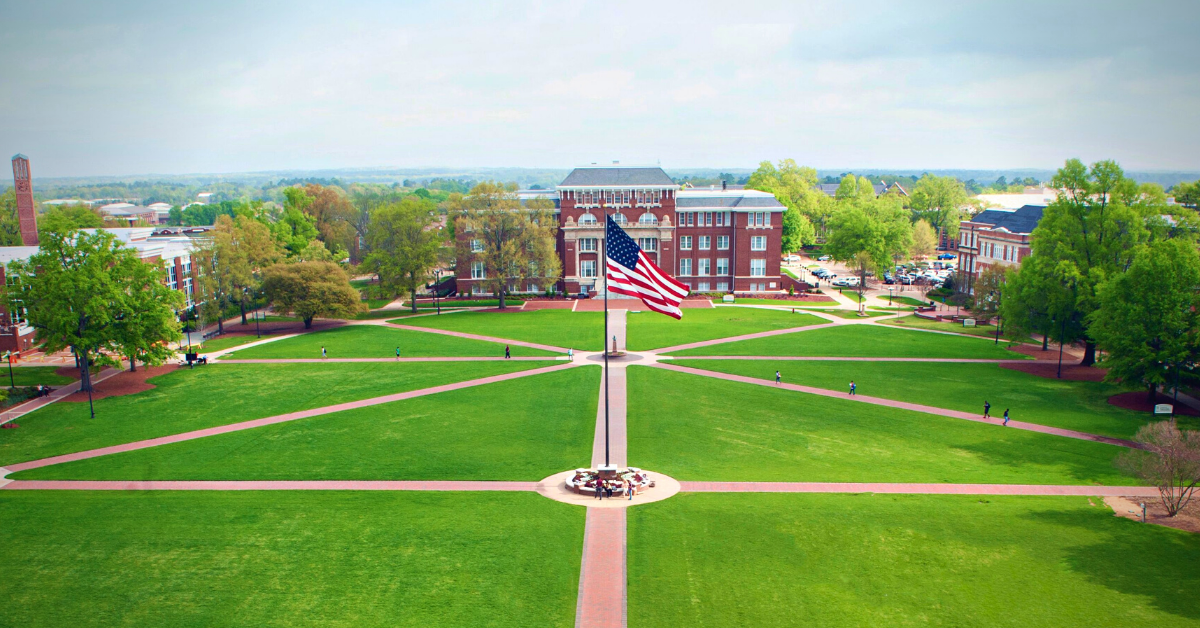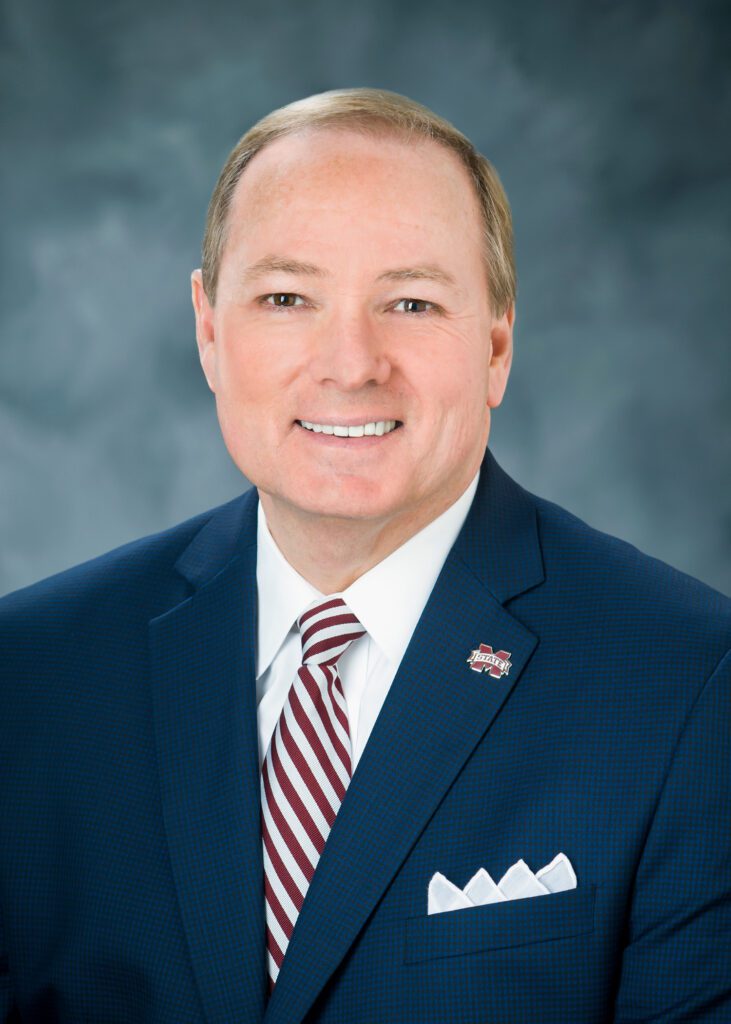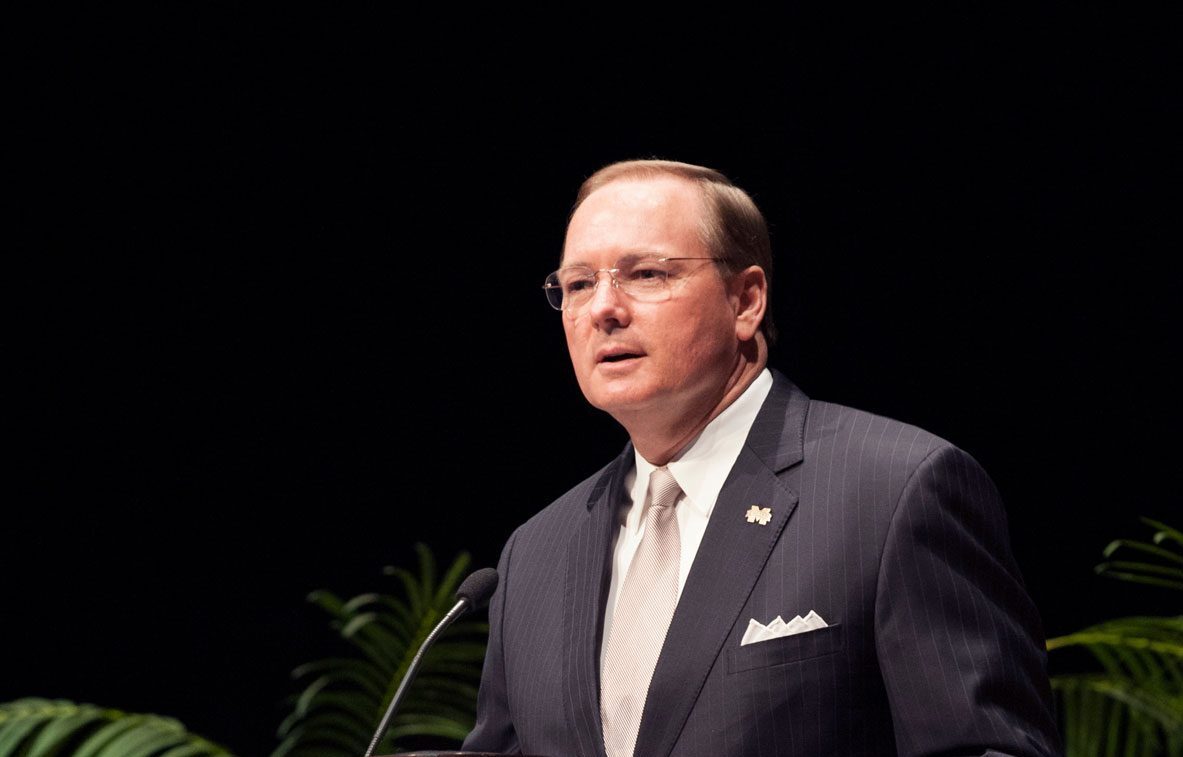
Mississippi State University Drill Field. (Photo from MSU)
News of Miss. State’s research success is spreading and recently gained a national stage.
Mississippi State University’s legacy as a land-grant research institution producing impactful results that grow and secure more and better jobs remains strong and secure — not just for our graduates but for the people of Mississippi.
Working in concert with our distinguished MSU faculty and staff, MSU students are addressing global hunger and food insecurity, writing the flight plan for uncrewed aerial systems, shielding data from hackers, building better and more efficient vehicles, curing disease, and healing and protecting animals from pets to livestock. In short, at MSU we are taking care of what matters.

“Student success” is a new phrase that describes an old concept — providing a university education that improves the lives of our students and, at the same time, benefits humanity. We have a tremendous responsibility to prepare our students for the immense challenges of the 21st Century here in Mississippi and globally.
We must strive to prepare students to compete successfully for the jobs of the future. Not only must they be competitive in Mississippi, but they also must possess the honor, kindness and mutual respect necessary to be globally competitive. As educators, our job is to inspire our students to aspire to the careers of the future.
The connection between relevant, impactful university research and the evolving global economy is clear and undeniable.
MSU’s Center for Advanced Vehicular Systems (CAVS) has been part of Mississippi’s auto manufacturing landscape for 20 years, longer than any other university in the state. CAVS was operating at Nissan’s Canton operation since before actual production began. Mississippi’s pre-pandemic share of the auto industry was valued at $5.6 billion and over 55,000 jobs.
As Mississippi’s only Top 100 National Science Foundation (NSF) university and as a Carnegie Foundation R1 Very High Research Activity and Community Engagement institution, MSU’s annual research expenditures recently climbed to more than $280 million — representing over half of all Mississippi university research.
MSU’s longtime status as a national leader in agricultural research is well-known. MSU research supports and nurtures the state’s $9.7 billion agribusiness industry — including the state’s $3.8 billion poultry industry, $1.8 billion soybean industry and $1.3 billion timber industry.
But growing in relevance to the futures of MSU students and their families is our research portfolio in diverse non-agricultural fields like high-performance computing, data science and cybersecurity.
News of MSU’s research success is spreading and recently gained a national stage. NSF Director Sethuraman Panchanathan and U.S. Sen. Roger Wicker (R-Miss.) joined us on campus recently as we hosted NSF Day — which provided university researchers the opportunity to discuss current NSF and national research priorities, as well as potential funding opportunities with our nation’s premier research funding agency.
What a thrill to be able to showcase existing Mississippi State research excellence and share our plans for the future with NSF leadership. Our research enterprise is strong, and we’re gaining momentum.
A major reason is that MSU has two systems on the Top 500 Supercomputing Sites list. These systems — Orion and Hercules — are funded by the National Oceanic and Atmospheric Administration and are utilized in support of NOAA research activities. MSU ranks fifth in the U.S. in academic supercomputing capability. These high-powered computers help our researchers thrive in areas like climate modeling and forecasting, precision agriculture, autonomous vehicular systems, and so much more.
As a state, Mississippi is ranked fourth in the number of Top 500 systems. That’s a lot of capability for a state that isn’t always thought of as being a leader in technology and innovation. Soon, we will begin construction of a new advanced supercomputer data center in the Thad Cochran Research Technology and Economic Development Park, and this new facility will significantly increase our capacity and capabilities in high-performance computing.
Mississippi State is committed to providing a friendly, nurturing environment for students that values diversity, inclusion, engagement, intellectual challenge, academic rigor and memories of unique individuals and experiences that will last a lifetime. We do believe in “Taking Care of What Matters” — and as I often remind students, what matters most during this season of your life is you and your future. Hail State!









